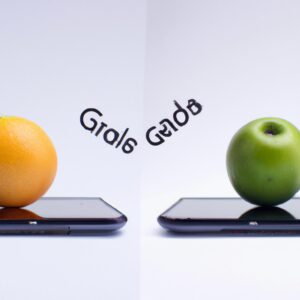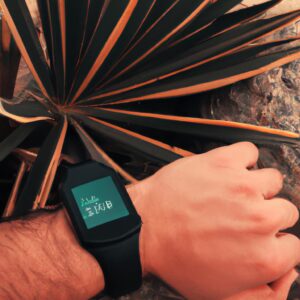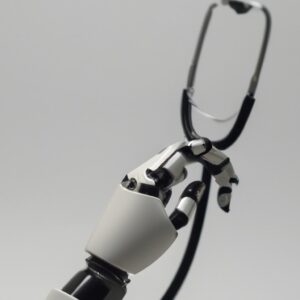Dive Into Buying the Right Smartphone: Android vs. iOS

What is a Smartphone?
A smartphone is an advanced mobile device that combines features of a traditional cell phone with a handheld computer. It typically has a touchscreen, a full web browser, and access to third-party applications. It offers many of the same features as a desktop or laptop computer in a compact size.
Factors to Consider When Buying a Smartphone
When choosing a smartphone, there are several factors to consider. Here are some of the top things to keep in mind:
- Platform: What type of operating system does the device use? Are you looking for an Android-based device or an iOS-based device?
- Screen size: How large or small do you want the display to be?
- Camera quality: What type of camera resolution do you need?
- Storage capacity: How much storage space will you need?
- Battery life: Will the battery last for a full day?
- Connectivity: How important is it to have access to wireless networks?
- Price: What is your budget for a new device?
Choosing the right smartphone can be overwhelming, but understanding these key factors can help you make the best decision for you and your needs.
Benefits of Android Phones
Android phones come with tons of benefits that make them a very popular choice. Some of these benefits include:
- Flexibility – Android phones give users the ability to customize their devices in numerous ways. With a variety of apps, widgets, and launchers available, users can truly make their smartphones their own.
- Usability – Android phones are known for their easy-to-use interfaces. Android’s intuitive design makes it simple to access the features you need quickly and easily.
- Customizability – As mentioned above, Android phones allow users to customize their devices in various ways. This includes changing the wallpaper, rearranging the app and shortcut placement, and more.
- Affordability – Android phones offer great features at a price point that is available to nearly everyone. Whether you’re looking for a budget-friendly device or a high-end flagship model, Android phones have something to offer everyone.
These are just some of the many benefits of Android phones. With so many features and options available, it’s no wonder why they are a top choice for many smartphone users.
Benefits of iOS Phones
Apple’s iOS operating system is well-known for its user friendly interface, providing a secure and reliable platform for each device. When choosing an iPhone, you can be sure that your phone will stay up-to-date with the latest software and security updates for many years to come. Additionally, iPhones are very reliable and consistent in terms of their security and privacy, with Apple providing a wide array of privacy protections so you can stay safe online.
In terms of compatibility, iPhones offer the best compatibility with other devices on the market. With a single charger, you can easily charge your iPhone, iPad, and other Apple products, along with many other non-Apple devices. Furthermore, Apple also offers great compatibility with its own products, ensuring that switching phones or tablets won’t cause any disruption to how you use your device.
iOS devices are also designed with great attention to detail in terms of their design. iPhones have become iconic for their sleek, elegant designs, and Apple continues to innovate with each new model. Further, the app store for iOS devices offer hundreds of thousands of apps, many of which are designed specifically for the iOS experience.
Overall, iPhones provide fantastic value for money, offering high quality security and performance with their long-lasting, classy designs. No matter what you’re looking for in terms of features, iPhones offer something for everyone.
Discussing the Differences between Android and iOS
When it comes to smartphones, Android and iOS have the most popular operating systems. There are a few key differences between them that you should be aware of when selecting a device. Let’s go over these differences one by one.
Operating Systems
Android is developed by Google and uses a version of the Linux kernel. It’s open-source, so anyone can use it and developers can modify the code. iOS is developed by Apple and is a closed-source operating system; meaning only Apple has access to its code.
App Stores
iOS devices have the App Store where users can download apps from. The App Store has been around for over a decade and is known for its rigorous security standards. Android devices have the Google Play store, which also has a wide variety of apps, but tends to be more open to developers. The Google Play store has less stringent security protocols than the App Store.
Hardware Availability and Customer Service
Apple makes its own hardware, so all iPhones and iPads are made with the same components and have the same features. Android devices come in many different shapes and sizes since they can be made by multiple different companies. This means that they have different components and features. When it comes to customer service, both Apple and Android provide support, but Apple is known for being more reliable.
Pros and Cons of Using an Android or iOS Device
Deciding between an Android and an iOS device can be an overwhelming decision. Each platform has its own set of pros and cons, so in order to make an informed decision about which device is right for you, it’s important to weigh the relative advantages and disadvantages of each.
Pros of an Android Device
- Compatible with a wide range of devices – Android devices are compatible with a huge range of hardware, including phones, tablets, laptops, and more.
- More customization options – Android users have more control over how they customize their devices compared to iOS users.
- Google Assistant – Google Assistant is the most advanced virtual assistant on the market. It can help you with scheduling, reminders, answer questions, and much more.
- Easy to transfer files – It’s easy to transfer files from your computer to your Android device or vice versa.
Cons of an Android Device
- More vulnerable to malware – Since Android is more open and allows for more customization, it is also more vulnerable to malware.
- Less reliable customer service – Android customer service is not as reliable as Apple customer support.
- System updates can be slow – Android phones take longer to receive system updates compared to Apple devices.
- Fragmentation – Android phones come in a wide variety of shapes, sizes, and specs which can lead to fragmentation issues.
Pros of an iOS Device
- Clean and intuitive design – iOS devices have a clean and intuitive design that is easy to use.
- Secure operating system – Apple devices are much more secure compared to Android devices, making them less likely to get hacked.
- Hardware quality – Apple devices are known for their excellent hardware quality.
- Strong customer support – Apple is known for its strong customer service, making it easy to get help if you ever need it.
Cons of an iOS Device
- Expensive – iOS devices tend to be more expensive than Android devices.
- Limited customization options – iOS devices do not offer the same level of customization options as Android devices.
- Minimum level of functionality – iOS devices do not offer the same level of flexibility and functionality compared to Android devices.
- Not available on all carriers – iOS devices are not available on all carriers, meaning you may have to switch providers to get an iOS device.
Best Android and iOS Smartphones
Modern Smartphones come loaded with features that allow us to stay connected, capture memories, and stay entertained. Shopping for a device can be hard because there are so many choices available. Consumers should consider several key elements when choosing the right Smartphone.
Comparing Android and iOS devices can be tricky, but starting with the features they have in common can help. Most phones support browsing the web, taking high quality photos, GPS navigation, voice assistant, and sending messages. The latest models also offer facial recognition and secure digital payment methods.
- Android Phones
- Google Pixel 4: This phone offers Super Res Zoom which provides better picture quality when you zoom in on images. Available in both 5.7” and 6.3” sizes, it also comes equipped with Night Sight for capturing pictures in low light.
- Samsung Galaxy S20: For those looking for a cutting edge device, the Samsung Galaxy S20 is the perfect choice. It comes with 5G connectivity, a high refresh rate display, 120Hz adaptive display, and much more.
- iOS Phones
- Apple iPhone 11 Pro Max: With its A13 bionic chip, triple rear camera setup, and long lasting battery life, the Apple iPhone 11 Pro Max is sure to please. It also offers the widest range of colors and has an OLED screen for DCI-P3 wide color gamut compatibility.
- Apple iPhone SE: The iPhone SE combines the best of both worlds. It offers a compact design with the same power as other iPhones, and comes in multiple color options. It also has wireless charging capabilities, and is water and dust resistant.
The right device will depend heavily on personal preferences, but these two platforms have plenty of great options to choose from. If you’re having trouble deciding, remember to consider the different features each phone offers and how it fits into your lifestyle.
Unlocking and Jails Breaking
Unlocking and jailbreaking your smartphone can provide extra functionality to your device. Unlocking a phone means that you can use it on any network, whereas jailbreaking refers to rooting an Android device or unlocking an iOS device so that it can run software from outside the usual app stores.
Unlocking and jailbreaking a phone is usually done by entering a code of some sort into the phone, or downloading and running a specific software package. If you buy a part-used phone, it may already be unlocked or jailbroken. Once unlocked or jailbroken, you should be able to install third-party applications and access settings that are usually hidden from view.
The process of unlocking and jailbreaking a phone can be a bit complex, so it’s best to do some research before attempting it. Any unlocking or jailbreaking should be done at your own risk. Additionally, any warranty or guarantee that comes with the phone will usually be void if the phone has been unlocked or jailbroken.
For those looking for extra features and options, unlocking and jailbreaking a phone can be an insightful and fun experience. It can also be quite rewarding when you know that the device is now one of a kind.
Popular Apps
When choosing a smartphone, it’s important to take into consideration the popular apps available for the device. Popular apps like Snapchat, Instagram, and TikTok are essential for most people’s social media needs. Android and iOS both have a selection of these apps, but there may be some minor differences in features between the Android and iOS versions.
For example, the Android version of Snapchat might not have all of the same features as the iOS version. Additionally, certain apps may be exclusive to either Android or iOS, meaning you can’t get them on the other system. It’s important to research and find out which version of an app is better for you before you choose your phone.
It’s also worth considering if you’re comfortable with searching for and downloading apps from your chosen device’s app store. Android uses the Google Play Store while iOS uses the App Store. Both stores are easy to use, but they operate different and may have different features.
Accessories for Android/iOS Devices
Smartphones come with a lot of features and are highly customizable. However, none of it is complete without the proper accessories. There are hundreds of different accessories available for both Android and iOS devices, so you have plenty of options to consider.
For starters, if you use your smartphone often, it might be wise to invest in a case or cover to protect your device from any damage. You can find cases for both Android and iOS devices in various colors, materials, and designs. There are also screen protectors available which can help protect against scratches and dirt accumulation.
Next, there are several types of chargers available for your device, including wireless or USB-C charging. Wireless chargers are great for keeping your device powered up while not being attached to a wall outlet. Additionally, you can find many different types of car chargers, allowing you to keep your phone charged no matter where you are.
Other popular accessories include headphones, Bluetooth speakers, and fitness trackers. These accessories can help you get the most out of your device and can provide an extra level of security.
When choosing accessories for your phone, make sure to do your research to find the best ones for you. Many stores sell accessories for both Android and iOS devices, so shop around to find the best deals.
What Smartphone is Right for You?
Choosing the right smartphone can be a daunting task. With all the different options available, how do you even decide what’s best for you? Let’s go over the steps you need to take to make an informed decision:
- Evaluate Your Needs: Consider what you need and prioritize those needs. Ask yourself questions like “Do I need lots of storage space or a longer battery life?” or “Do I need a larger screen or a more powerful processor?”
- Research the Brands: Research the major brands to see which one best fits your needs. Look into any potential red flags regarding quality or customer service. Read reviews from users as they can provide valuable insight.
- Set a Budget: Set a budget and research the different phones that fit within that range. Stick to that budget even if a phone seems like a great deal, it may end up costing more than you expected.
- Choose Your OS: Consider the two main operating systems, Android and iOS. Android phones are flexible and customizable, while iOS phones are easy to use and have great security. Make a decision based on what features and usability matter to you.
- Find the Best Device: Once you have your budget and OS set, it’s time to find the perfect device. Going through device specs like battery life, RAM and processor speed, etc. can help you find the best device.
After going through each of these steps, you should have a good idea of what smartphone is best for you. Take your time throughout the process and make sure to research any information you’re not sure about. Good luck in your search for the perfect device!
Frequently Asked Questions
Purchasing a smartphone is a big decision, and it’s normal to have lots of questions. Here are some common questions about Android vs. iOS phones.
- What’s the difference between Android and iOS? Android and iOS are two different operating systems. They have different user interfaces, app stores, hardware availability, customer service, and more. Android phones tend to be more flexible and customizable, while iOS phones are more secure and have fewer compatibility issues.
- Which phone should I buy? It really depends on your needs and preferences. Both phones have their own advantages and disadvantages. Do research, consider your lifestyle and budget, and think about what features matter most to you.
- Can I use apps from both Android and iOS? Yes, but typically apps are specific to a phone’s operating system. If you want to use an app from the other platform, you will need to download the corresponding version.
- Are there any unlocked or jailbroken phones available? Some phones can be unlocked or jailbroken to give users additional functionality. This gives you greater control over your device, but it also comes with the risk of voiding your warranty.
Conclusion
Choosing between Android or iOS for your smartphone needs is a difficult decision. You have to research different models, features, designs, operating systems and more in order to find the perfect device for you. This guide has provided you with an overview of the advantages and disadvantages of both platforms and a selection of the best Android and iOS smartphones available. Furthermore, we have also discussed some of the popular apps and accessories that are compatible with each OS and a few tips to help you make the right choice.
We hope this guide has been helpful in informing your decision and that you now feel equipped to make a confident purchase. However, if you are still unsure or have any further questions related to Android and iOS devices, don’t hesitate to reach out!
comments: 0






